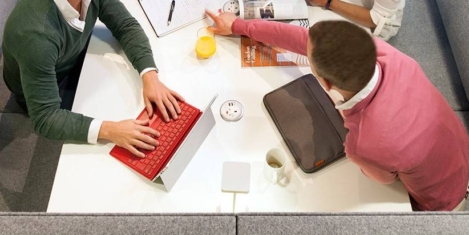To provide the best experiences, we use technologies like cookies to store and/or access device information. Consenting to these technologies will allow us to process data such as browsing behaviour or unique IDs on this site. Not consenting or withdrawing consent, may adversely affect certain features and functions.
The technical storage or access is strictly necessary for the legitimate purpose of enabling the use of a specific service explicitly requested by the subscriber or user, or for the sole purpose of carrying out the transmission of a communication over an electronic communications network.
The technical storage or access is necessary for the legitimate purpose of storing preferences that are not requested by the subscriber or user.
The technical storage or access that is used exclusively for statistical purposes.
The technical storage or access that is used exclusively for anonymous statistical purposes. Without a subpoena, voluntary compliance on the part of your Internet Service Provider, or additional records from a third party, information stored or retrieved for this purpose alone cannot usually be used to identify you.
The technical storage or access is required to create user profiles to send advertising, or to track the user on a website or across several websites for similar marketing purposes.
 A UK wide study commissioned by photographic tech company Popsa claims that as many as 66 percent of the nation feel frustrated with the online world, and are actively seeking more “authentic” experiences, with meeting people for coffee face to face (31 percent), going to the cinema with friends (23 percent) and listening to vinyl or CDs (17 percent) among the list of ways to embrace reality. (more…)
A UK wide study commissioned by photographic tech company Popsa claims that as many as 66 percent of the nation feel frustrated with the online world, and are actively seeking more “authentic” experiences, with meeting people for coffee face to face (31 percent), going to the cinema with friends (23 percent) and listening to vinyl or CDs (17 percent) among the list of ways to embrace reality. (more…)








 New guidance has been launched by the UK Green Building Council (UKGBC) to assist client organisations to include more ambitious circular design and construction best practices in project briefs for non-domestic projects. It addresses the commercial realities associated with making this practically happen and provides support and evidence to assist clients in setting clear strategies that ensure budget, project timescales and risks are all minimised and mitigated. The guidance may also be helpful for those in the supply chain looking to support construction clients on their journey towards specifying and practically applying circular economy principles.
New guidance has been launched by the UK Green Building Council (UKGBC) to assist client organisations to include more ambitious circular design and construction best practices in project briefs for non-domestic projects. It addresses the commercial realities associated with making this practically happen and provides support and evidence to assist clients in setting clear strategies that ensure budget, project timescales and risks are all minimised and mitigated. The guidance may also be helpful for those in the supply chain looking to support construction clients on their journey towards specifying and practically applying circular economy principles.








 The majority of working women experiencing the menopause say it has a negative impact on them at work, finds a new survey from the CIPD. The research found that three out of five (59 percent) working women between the ages of 45 and 55 who are experiencing menopause symptoms were finding it impacted them at work. In response, the CIPD has launched
The majority of working women experiencing the menopause say it has a negative impact on them at work, finds a new survey from the CIPD. The research found that three out of five (59 percent) working women between the ages of 45 and 55 who are experiencing menopause symptoms were finding it impacted them at work. In response, the CIPD has launched 
 Ahead of daylight savings this weekend,
Ahead of daylight savings this weekend, 














April 4, 2019
Workplace art can draw the distinction between branding and corporate identity 0
by Helen Owen • Comment, Workplace design